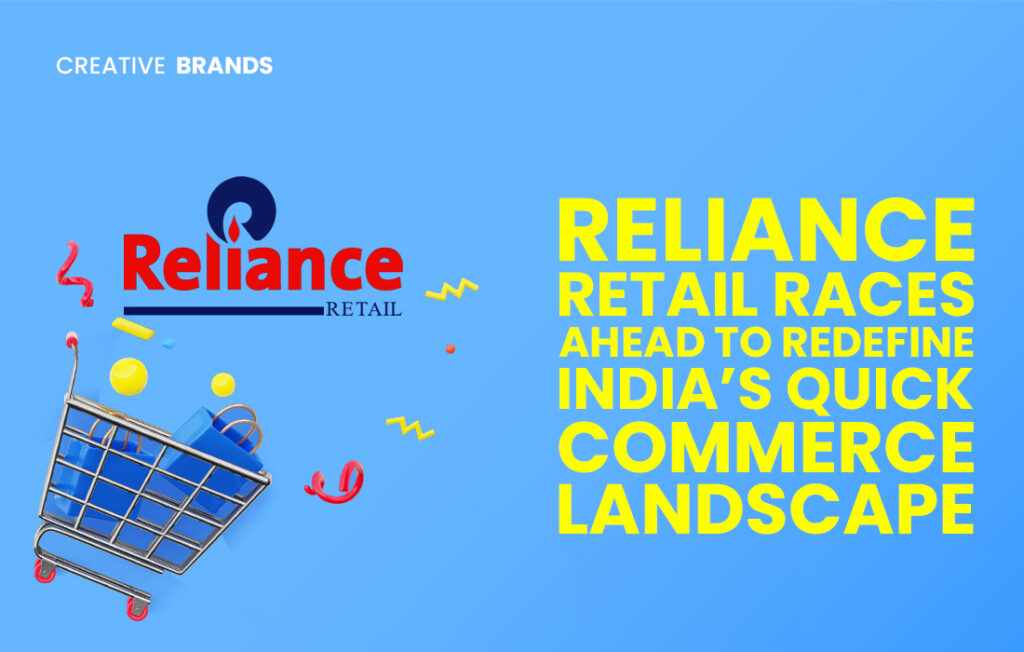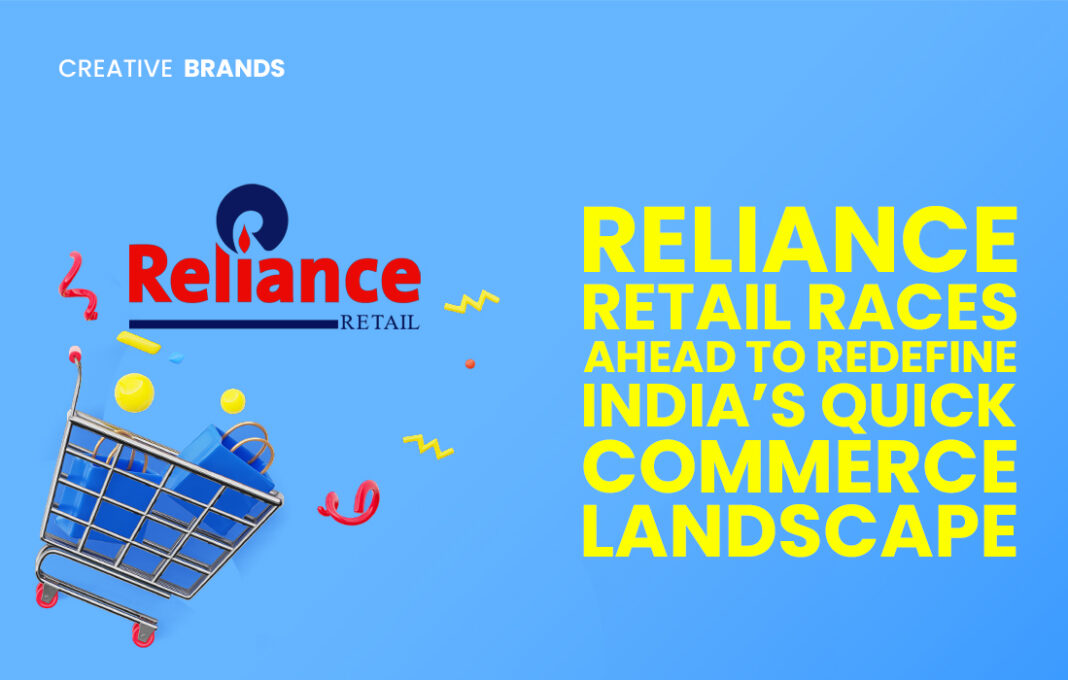Reliance Retail is rapidly expanding JioMart to dominate India’s $5B quick commerce market, operating in 1,000+ cities with 600 dark stores and 3,000 hyperlocal hubs. With 200% YoY order growth and expansion into fashion and electronics, Reliance’s hybrid model and vast retail network give it a major competitive edge nationwide.

Reliance Retail is rapidly expanding JioMart to dominate India’s $5B quick commerce market, operating in 1,000+ cities with 600 dark stores and 3,000 hyperlocal hubs. With 200% YoY order growth and expansion into fashion and electronics, Reliance’s hybrid model and vast retail network give it a major competitive edge nationwide.
India’s fast-growing quick commerce market — already valued at over $5 billion — is entering a new phase of disruption, and Reliance Retail is leading the charge. Through its digital commerce arm, JioMart, the retail giant is rapidly expanding its footprint, setting new industry benchmarks for speed, scale, and accessibility across urban and rural India.
In just two quarters, Reliance Retail has transformed its delivery operations, setting up over 600 dark stores across the country to enable sub-30-minute deliveries. With an operational network spanning 1,000+ cities and 5,000+ pin codes, the company has built one of India’s most extensive quick commerce infrastructures — one that integrates digital convenience with physical reach.
The momentum is striking. JioMart recorded a 200% year-on-year surge in orders and added 5.8 million new customers in the last quarter alone. Leveraging its 3,000+ retail outlets as hyperlocal fulfillment hubs, Reliance is creating a unique hybrid model that merges online speed with offline efficiency — a combination few players in India’s quick commerce segment can match.
Beyond groceries, Reliance Retail is expanding its offerings into categories like fashion and electronics, bringing brands such as AJIO, Smart Bazaar, and JioMart under a unified quick-commerce ecosystem. This move positions Reliance not just as a grocery delivery player but as a comprehensive lifestyle and essentials platform — capable of meeting the growing expectations of India’s digital-first consumers.
At the heart of Reliance’s strategy is its powerful omnichannel network of 19,000+ stores nationwide. Each store doubles as a potential fulfillment center, ensuring deep penetration into Tier-2 and Tier-3 cities — a logistical advantage that purely digital rivals like Blinkit, Swiggy Instamart, and Zepto can’t easily replicate. This vast on-ground infrastructure allows Reliance to promise rapid deliveries and competitive prices, even in regions beyond major metros.
Industry observers note that Reliance’s aggressive approach could significantly alter the quick commerce landscape. By combining its established retail presence, strong supply chain, and technology-driven logistics, Reliance is poised to push the industry toward faster delivery benchmarks and sharper price competition. Its entry also puts pressure on existing players to innovate further, particularly in regions where Reliance can leverage its network density for speed and cost efficiency.
Quick commerce, defined by deliveries under 30 minutes, is no longer confined to instant grocery needs. Increasingly, consumers are using these platforms for last-minute fashion, personal care, and electronics purchases. Reliance’s integration of AJIO and Smart Bazaar into JioMart’s framework hints at a broader play — one that aims to turn JioMart into an “everything-now” marketplace, blending convenience with category diversity.
According to market estimates, India’s quick commerce sector, valued at around $5 billion in 2025, is projected to balloon to nearly $35 billion by 2030. The growth is being driven by a combination of impulse shopping behavior, rising disposable incomes, and the expanding appetite for instant gratification among urban millennials and Gen Z consumers. For Reliance, this represents not just a retail opportunity but a chance to reshape how India shops — and to dominate an ecosystem where delivery time, product variety, and price all converge.
Reliance Retail’s quick commerce strategy reflects the group’s broader ambition to consolidate its leadership across India’s consumer markets. JioMart already plays a central role in the company’s digital retail expansion, supported by Jio’s connectivity ecosystem and Reliance’s robust supply chain infrastructure. Together, these assets create a closed loop of customer data, fulfillment capability, and digital engagement — a foundation that few others can rival.
Experts suggest that Reliance’s hybrid model gives it a unique cost advantage. Unlike app-only competitors that rely heavily on third-party logistics and limited warehouse networks, Reliance can use its existing retail stores to process and deliver orders locally, drastically reducing both cost and delivery time. This model also supports faster inventory turnover and ensures better control over product quality and availability.
For customers, the immediate benefit lies in choice and convenience. With Reliance’s entry, users in smaller towns can expect access to faster deliveries, a wider product range, and competitive pricing previously limited to metro markets. For the market, it signals a new phase of democratized quick commerce — where scale and technology combine to deliver speed and savings nationwide.
As the industry braces for intense competition, Reliance Retail’s playbook is clear: integrate its nationwide retail backbone with AI-driven logistics, hyperlocal hubs, and data-led personalization to redefine the quick commerce experience. By doing so, the company isn’t just entering a fast-moving market — it’s rewriting its rules.
With the boundaries between physical and digital retail fading faster than ever, Reliance Retail’s quick commerce push could well become a case study in how India’s largest homegrown conglomerate continues to reinvent itself — by putting the customer’s clock, quite literally, at the center of its business.
Discover more from Creative Brands
Subscribe to get the latest posts sent to your email.






